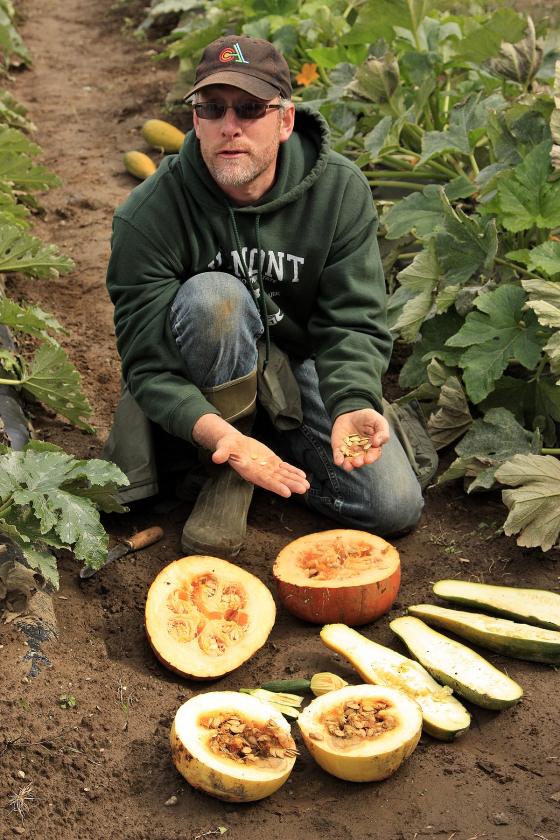Posted March 17, 2022 at 10:36am by Anonymous (not verified)
A Taste of Farm to Plate Investments

Written by Karin Chamberlain
Clean Yield Asset Management clients aim to align their money with their values, and for many that means finding ways to invest in their local communities and regional economies, especially in the food and agriculture sector. Ten years ago, just about the only vehicles for doing so were preferred shares in the Organic Valley and Equal Exchange cooperatives. They were a great start, but interest in more options was growing.
Clean Yield’s first concrete opportunity for a direct local agriculture investment came in late 2007 with an investment in High Mowing Organic Seeds, which needed capital to meet soaring demand. Clean Yield offered the High Mowing investment to its clients, but only a handful could tolerate the risk of investing in a single small company.
The establishment of the Flexible Capital Fund in 2010 played a key role in allowing more Clean Yield clients to participate—by offering a professionally managed, diversified investment vehicle focused on agriculture and clean energy. Eric Becker, portfolio manager and chief investment officer at Clean Yield says, “This was a dream come true for us, and we must thank Janice St. Onge, president of the Flexible Capital Fund for her imagination, leadership, and persistence in creating and managing that fund.”
Becker continues, “Our clients were enthused by the chance we had given them to go beyond having a ‘clean’ portfolio of stocks and bonds, to having holdings in their portfolios that reflected their deeply held vision of a truly sustainable local/regional economy and food system. Our clients could actually witness the impact of these investments. And once they had a taste of it, they clamored for more. The feeling was mutual. We took great satisfaction in the service we were providing, both to our clients and to the local economy.”
Clean Yield has been an active member of the Farm to Plate Network since its inception, serving on the Farmland Access and Stewardship Working Group and the Finance Cross-Cutting Team. Clean Yield staff have also actively supported Slow Money Vermont, a project of the Finance Cross-Cutting Team, and helped to launch the Vermont Food Investors Network.
“Our objective in all these efforts is to bridge the financing gaps for Vermont’s food system entrepreneurs,” says Becker. As part of Clean Yield’s deal sourcing, they actively collaborate with other capital providers in Vermont including the Flexible Capital Fund, the Vermont Community Loan Fund, and the Castanea Foundation.
Clean Yield is committed to helping ensure entrepreneurs have the right match of capital to meet their financing needs at their stage of growth and for their scale of business. This aligns with the Vermont Farm to Plate goal to increase access to capital for food system enterprises. In many instances the capital provided by Clean Yield investors helps leverage additional capital, which supports coordinating financial resources, also a Farm to Plate goal. In sharing due diligence research with other capital providers, the Clean Yield team is able to gather a broader and deeper understanding of the risks and opportunities faced by entrepreneurs and provide the appropriate feedback and technical assistance needed to grow their businesses to the next level.
To date, Clean Yield clients have invested over $14 million in impact investments, representing 5% of assets under management. Of that, $4.3 million is directly invested in the Vermont food system; an additional $1 million is invested in organic farmland company Iroquois Valley Farms (which made its first Vermont farm investment in Strafford this fall); and another $1 million is in the Vermont Community Loan Fund. Along with other investments in the greater New England food system, this brings Clean Yield clients’ investments in the regional food system to over $8 million.
With almost a decade of active impact investing experience, Clean Yield is beginning to see meaningful returns, both financial and social. In several instances additional investments have been made to help businesses grow to the next level. The social and environmental returns remain hard to measure, but are undeniable. Client commitments to financing the food and agricultural sector help make capital more accessible, and often cheaper, for the companies that are building a more just and sustainable food system.
“We recognize that in the context of the global food system, it’s barely a drop in the bucket. But we also know that our efforts are making a difference in our region, and hope that our example may inspire others,” Becker concludes.
Since 1984, Clean Yield Asset Management has provided customized investment portfolios that reflect each client’s financial goals and social values. Clean Yield also offers clients the opportunity to participate in high impact investments, and engage in shareholder advocacy.
